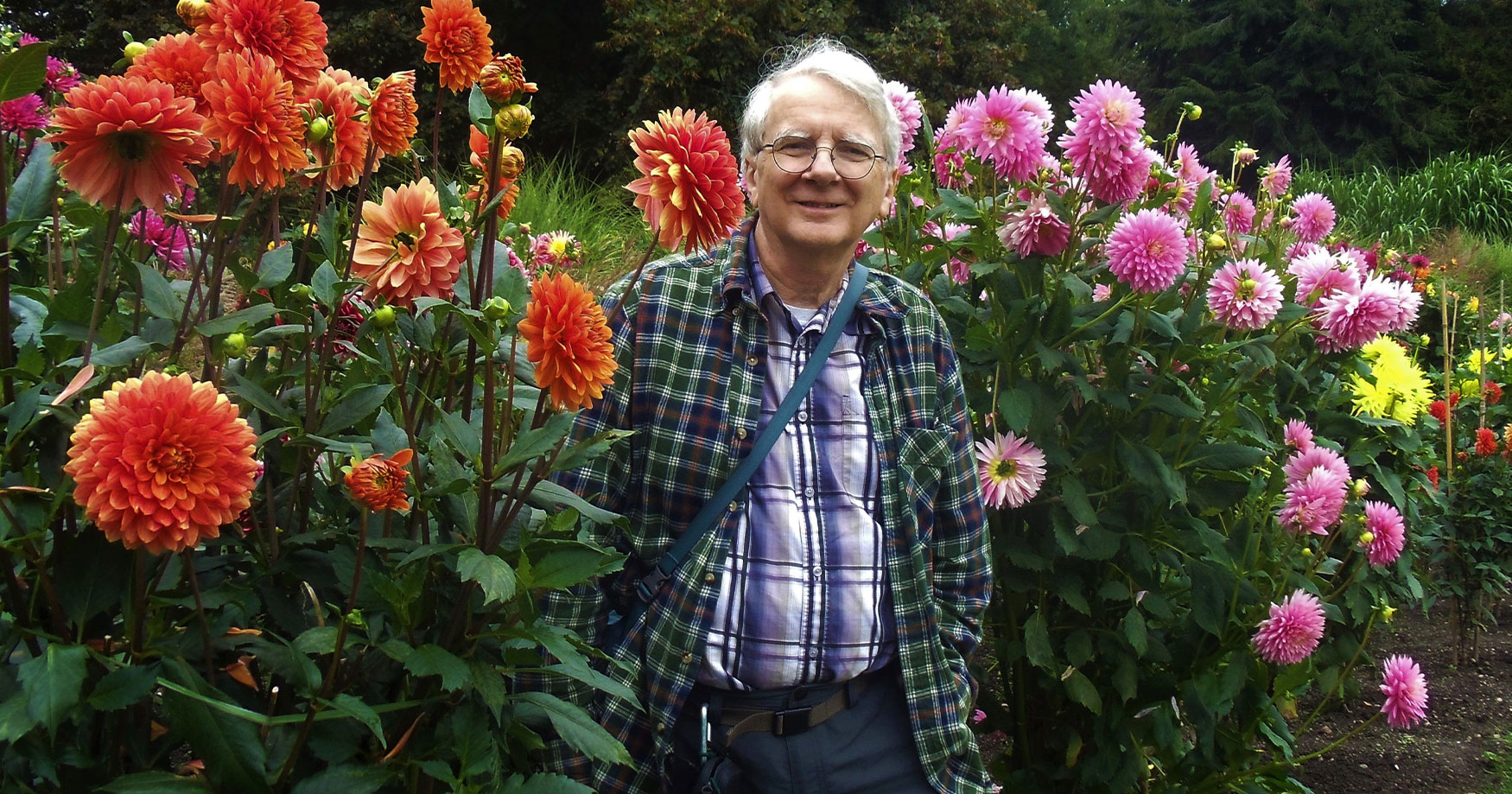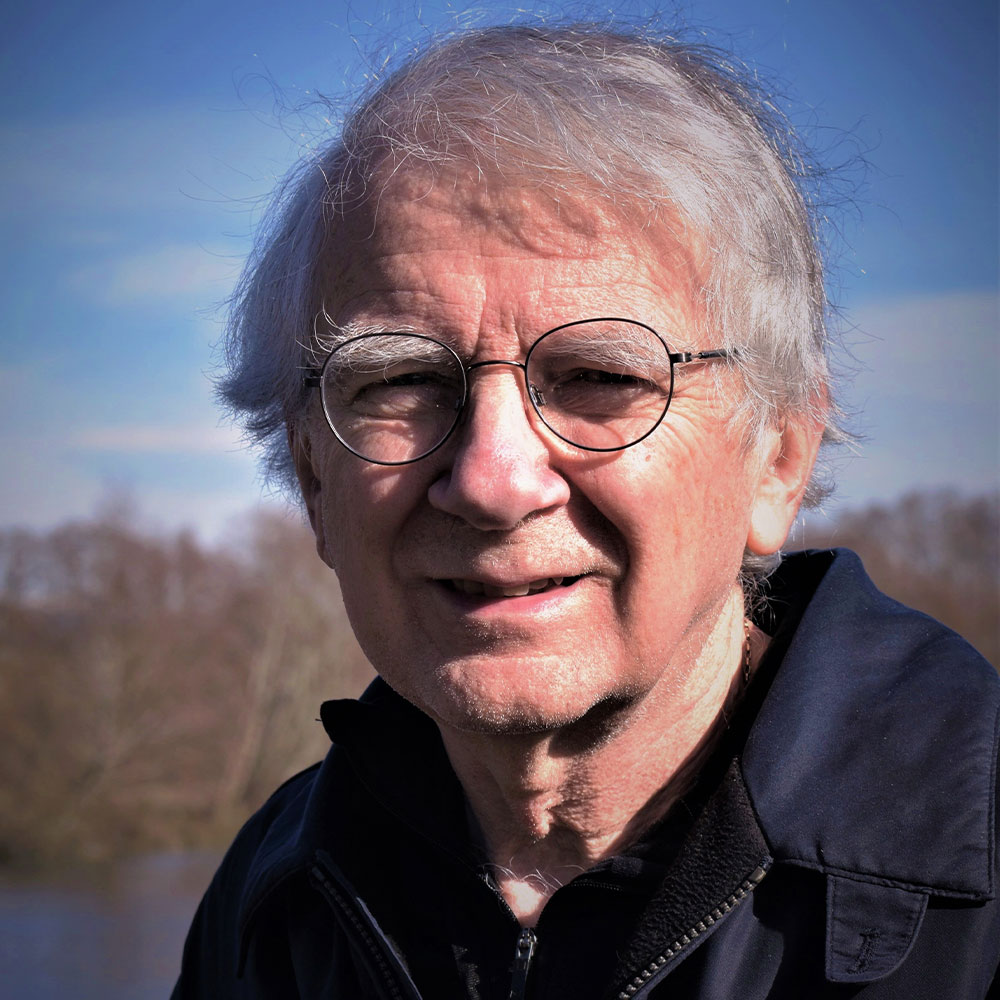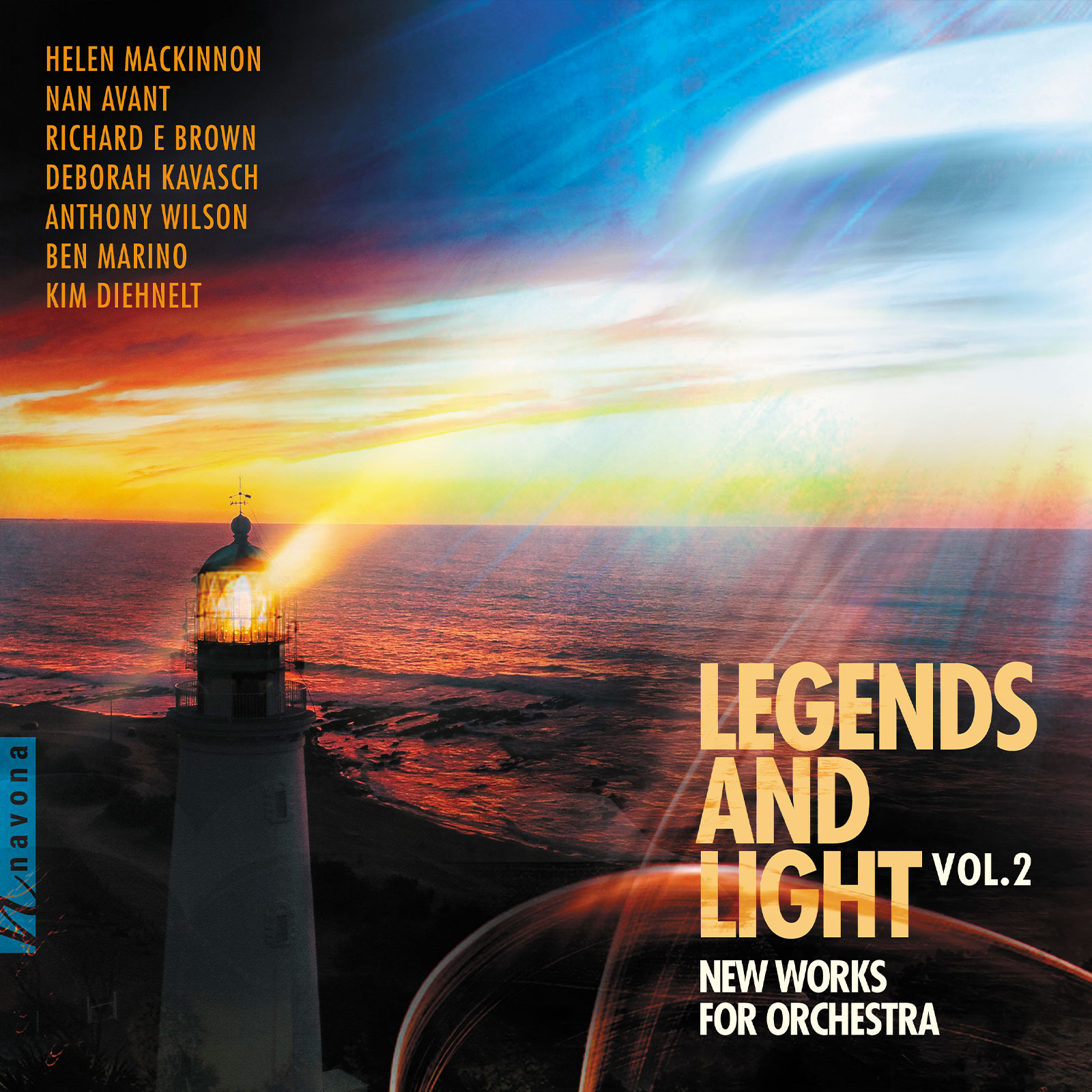
LEGENDS AND LIGHT VOL. 2 from Navona Records leaves no stone unturned. From the vast expansiveness of the open sea to the microscopic particles of our world’s chemical makeup, this follow-up to 2018’s LEGENDS AND LIGHT is an ambitious collection of new works for large ensemble. Connected in three parts, composer Richard E Brown’s Voices of the Night takes listeners through a frightening journey through the forest, ending with a soothing sunrise based on the opening theme.
Today, Richard is our featured artist in “The Inside Story,” a blog series exploring the inner workings and personalities of our composers and performers. Read on to learn about his background in arranging for marching band, and the lesson he learned from a famous rock climber in performance preparation…
What inspires you to write and/or perform?
I usually take my inspiration from the music of the masters, especially from the 20th Century. My influences pretty much cover the gamut, and I am especially inspired by such diverse composers as Persichetti, Barber, Copland, Stravinsky, Shostakovich, Britten, Vaughan Williams, and the list could go on and on. I once heard Leonard Bernstein say that he always prepared for a writing session by lying down and listening to music for a half hour or so. I don’t usually take the time to do that, but I do try to immerse myself with music in the style I am trying to create during the time I am working on a project.
What advice do you have for young musicians?
I’ve spent a lifetime teaching young musicians, some of whom have gone much further in the field than I have, so I guess I could write a book on that subject. First, understand that the most important word to remember is “persistence.” Nothing worthwhile comes easy and you have to be really motivated to reach your goal or it will elude you. Then you have to build up a network of contacts in your field and keep in touch with them. Don’t let them forget about you. If you are a performer, of course practice diligently and eventually work on getting into the studio of a prominent teacher who can open doors for you. If you are a composer, just keep writing and fighting for performances and publications. At first, you will probably get rejected a dozen or more times before someone takes a chance on you. Then work hard to build on your successes.
If we looked through your music library, what would we be surprised to find?
Well, as you would expect, there are dozens of classical scores from many composers and periods, so that wouldn’t surprise you. But I used to earn my living by doing free-lance arranging, mostly for marching bands. From those days, still prominent in my library is a big “fake book” that contains lead sheets for hundreds of jazz, pop, and traditional songs, along with many singer/group-specific pop song books and loose sheet music. I also still have many instrumental method books left over from my teaching days.
How do you prepare for a performance?
The rock climber Alex Honnold, subject of the Oscar-winning film “Free Solo,” always says that he prepares for a solo climb by visualizing everything that could go wrong ahead of time and facing the fear while his feet are on the ground, so that when he gets up on the rock, he has already dealt with that and can keep his mind squarely on the delicate job at hand. For me, besides the obvious practicing and knowing the music cold, I try to do the same thing for a performance. I visualize everything that could go wrong and face it. Then, at the actual performance, I try to put it out of my mind so that I can concentrate on conveying the message of the music to the audience.
What was the first performance you remember seeing?
When I was 5 or 6, my mom and older sister took me on a short trip to New York City. We lived in the Adirondacks and it was quite a long trip down there by car and then train. After getting off the train, there were so many shops in Grand Central Station that at first, I thought that was the city! Anyway, they took me to a show in the Radio City Music Hall, which in addition to the obligatory dance routine by the Rockettes and a movie, included a concert by the house orchestra. I had never heard a symphony orchestra before, even on recordings, and I was mesmerized by the music and the visual experience. I have no idea now what music was on the program, but the experience transformed me.
Who are your musical mentors?
I have spoken of my dad in both of the other “Inside Story” blogs that I have done, and he was my first and most significant mentor. Others would be my junior high and high school band directors, Bill Rich and Millard Chamberlain. They both gave me lots of help and encouragement in my nascent compositional efforts, putting up with me even though I was something of a brat! In college my major professor was Dr. Bob Rittenhouse, who gave me special composition lessons because that subject was not on the official curriculum. Then in graduate school, I studied with the prominent opera composer Carlisle Floyd, well-known band composer Charles Carter, and Dr. John Boda, the head of the composition department at Florida State. I was especially close with Charlie Carter, who taught me how to write for school bands, a medium which has always been a mainstay of my output.

Richard E Brown, a native of New York State and has been active as a composer-arranger and music educator for many years. His training includes M.M. and D.M. degrees in composition from Florida State University, as well as a B.A. in music education from Central College, which named him a Distinguished Alumnus in 1983. His principal composition studies were with Carlisle Floyd, John Boda, and Charles Carter. He is a member of ASCAP and is represented in the catalogs of several trade publishers, as well as his personal imprint Dacker Music.

